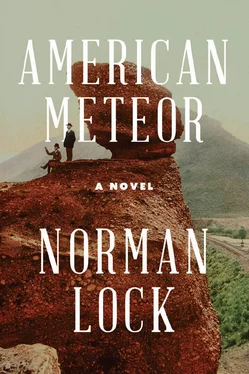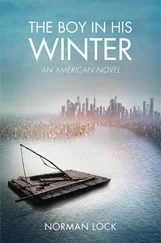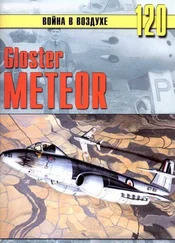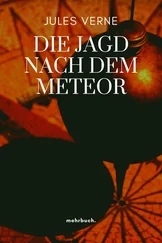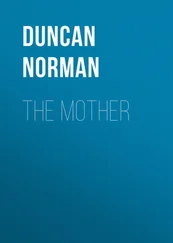Jackson and I entered the Utah Valley through the Wasatch. Wasatch is Ute for “low pass over high range.” He hadn’t anticipated the quantity of snow fallen already in the mountain passes, and the going was arduous, exhausting us as well as the mules, which found their footing with difficulty on the snow-covered rocks. We spent six days on the crossing, made increasingly nervous by each day’s new snowfall. It was bitter, and the raw wind cut. I recalled the fate of the Donner Party in the Sierra Nevada two decades earlier and wondered how Jackson would taste, stuffed with his dried apricots.
I never doubted I could endure the extremities of weather and terrain. I spent four years living like an animal in mud, rain, snow, and heat. And a tenement in winter or in the dog days is far worse. I’d survived an impoverished childhood and a terrifying war, but trudging through the Wasatch passes took the sand out of me. I felt my backbone melt in the heat of Sisyphean exertion, and — no sooner had it turned to slurry — I’d wince as it froze up once more in the cold. Forlorn, I would spend bitter hours of repentance for having agreed to make a trip for no other reason than to take pictures of the “fish eaters,” the Toompahnahwach Ute wintering in misery on the shore of Utah Lake. Jackson was imperturbable. Not even frostbitten toes could discourage him. He would spend the better part of his life in strange countries, including the one found inside each of us, and never doubt himself or yield to self-pity, the latter a quality predominant in my character.
On the seventh day, we came out of the snow-bandaged mountains and into the valley, near the Mormon settlement at Spanish Fork, about ten miles south of Provo. After resting the mules and giving them a ration of provender, we rode west toward the big lake where the fish eaters had their winter camp.
There were fifty-three Toompahnahwaches — call them Ute, for convenience — living under shabby lice-infested buffalo hides stretched on alder saplings. How lice managed to survive their wretchedness became a theme I returned to often that winter. In my boredom, I’d speculate on the damnedest things: how geese knew when to step up onto the ice before lake water knit up around them; why piss didn’t freeze in our bladders, when we couldn’t lick a metal spoon without our tongues sticking to it; why our stubble didn’t stay, by some kind of natural law, inside our faces, where it would be warmed, at least a little, by our blood — questions of no great import, inspired by the cold. I would have felt sorry for the Indians if I hadn’t been busy feeling sorry for myself. The snow crackled, hissed, and seethed; it twisted, wraithlike, over the white crust when the wind grumbled. What birds we hadn’t eaten shivered on the ridgepole. By the time April came and, with it, the thaw, nine Indians had perished from a variety of ills: children, old people, and a girl. One child was born and survived — a fact I consider miraculous under circumstances that were worse than dire.
Jackson exposed only a dozen negatives that winter. He would prepare the glass plates inside a darkroom tent, warmed by an amber-shaded spirit lamp; but the collodion thickened in the open air and the light grew sluggish as the views of lake and frozen steppe were closed down by falling snow. His hands, chilled to uselessness, would fumble among his glass plates and chemicals like those of a blind man desperate to touch what was familiar. The negatives he did manage were made during the hour or two when the sun seemed to rally with a yellowy light reminiscent of an egg yolk; usually, it looked pale as a pearl on the steely blue or leaden sky above the snow-scabbed lake. That’s a purple passage fit for a novel but hardly descriptive of the actuality of that winter, which was almost past enduring. They were discouraging times even for Jackson.
He was someone used to looking at the world through a lens — it was his eye — and he relied on his instrument to sound the depths of his subject matter, whether it was a formation of rocks or a solitary Indian. Unable to photograph the Ute as often as he’d like that winter, Jackson tried to “see” them without his camera. Two of the old men could speak English and did so with an eloquence that made me think of the King James Bible or Lincoln’s speeches. They’d been civilized by Quakers who had come all the way from Pennsylvania to turn them from heathens into gents. They could read and write and had sent polite letters to Johnson and Grant, asking that the government respect its treaties and allow the Ute to keep their buffalo herds safe from the hunters paid to slaughter them. Otherwise, there’d be nothing left but roots, bark, and vermin between them and starvation. Naturally, the government ignored them.
Jackson would spend hours palavering with the pair of natives, learning to “read the Indian,” just as he read the light, while I sat in a corner of the lodge, wrapped in stinking buffalo hides, sulking, speculating, and experimenting with my spit. I wanted to see if I could launch a gob high enough so that it would freeze in midair. I was in no mood to understand the black and unfathomable hearts of savages.
But something happened in February to change me; some would say for the better, though most would say to the detriment of my immortal soul. I took up with an Indian girl. I hesitate to say I fell in love with her, although if I’m honest, that is what I did — at least as I understand the term.
She had one of those comical Indian names like Sparks Blown up a Chimney. Hers was Fire Briskly Burning. I can’t recall what it was in Ute. Aptly named, she’d start up in my hands like a brush fire. We spoke not a word of each other’s languages. That was fine with me. I left the conversing to Jackson. He had a wife, in Omaha. He could enlarge his mind on the shore of Utah Lake all he wanted. I was lonely and happy enough just to be in Fire’s arms. I didn’t need to visit her country every time my blood was up, and during those dismal months underneath her buffalo robes, we congressed only half a dozen times or so. Mainly, I was after her warmth. No, I didn’t use her like a hot brick you take to bed on a winter’s night, although people who sleep in pairs know what a furnace a human being is. No, not just for that, anyway. I wanted to be close to another person — a woman, by preference. It didn’t matter whether she spoke Ute or Creole, Egyptian or Chinese. Maybe the isolation of that outpost on the ragged edge of nothingness made me crazy. Only once before had I felt as empty: when I watched my mother go into the ground. If love is more than a desperate remedy for loneliness, I don’t know what it is. What Fire Briskly Burning thought of love — what she thought of me — I never found out.
We had come to Utah Lake to see the misery of Indians, and we saw it. So did people back east when Jackson sent prints there, made from the few negatives he managed to take back to Omaha. But they did no good. Oh, a deputation of Quakers descended on Grant, and a horde of missionaries descended on the Indians. But Sherman, Sheridan, and Custer were hell-bent on converting the entire race of Indians into dead redskins. The Indians believed they inhabited an endless ribbon of time. Ten thousand years on the Great Plains had done nothing to disabuse them. It took us whites just twenty-five years to show them they were wrong.
By March, I began to feel in my belly how starvation felt. I’d lie under the buffalo robes, stiff with cold — Fire Briskly Burning’s furnace all but put out. I dreamed of the food I’d served the grandees on the hundredth meridian: roasted lamb and antelope, Chinese duck, oysters, buffalo tongue, braised bear in port wine sauce, washed down with champagne. After dinner, Durant had ordered a twenty-mile stretch of prairie grass set fire to entertain his guests. I wished to Christ I could feel its heat now; wished I’d some of the grass to feed the mules, one of which we’d slaughtered and dressed in the snow. I would eye the two remaining animals with avidity, but Jackson said we’d need them to climb out of the valley and over the Wasatch in the spring. He was thinking only of his goddamn camera and plates!
Читать дальше
